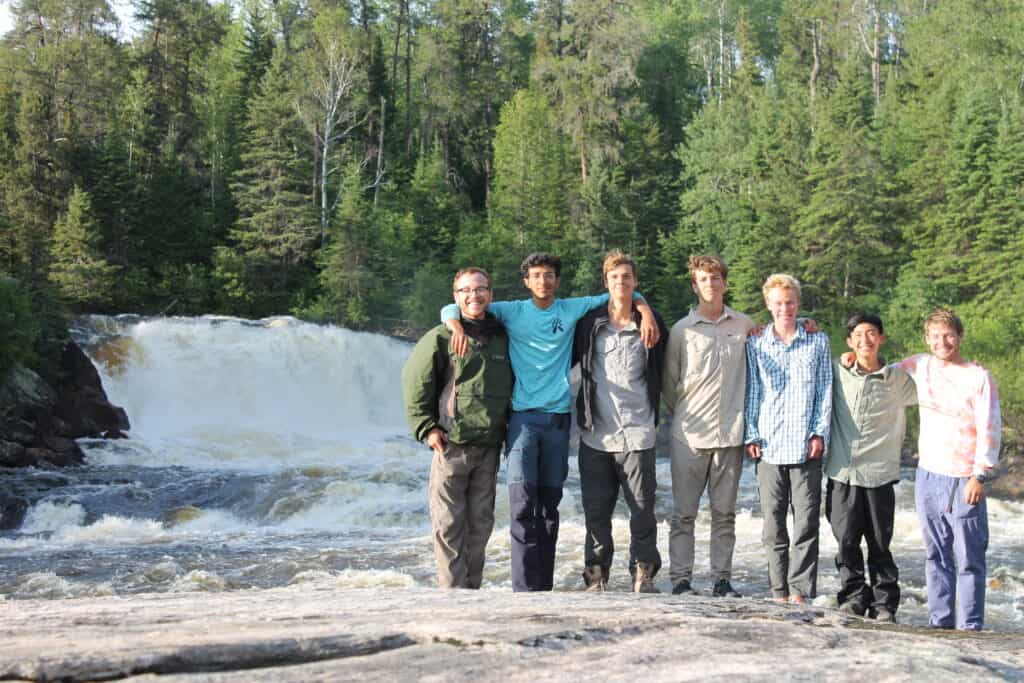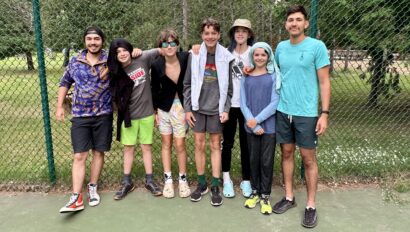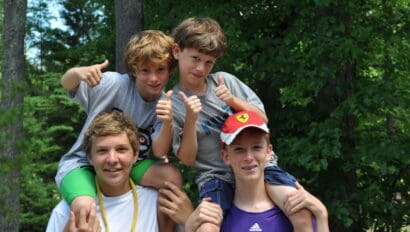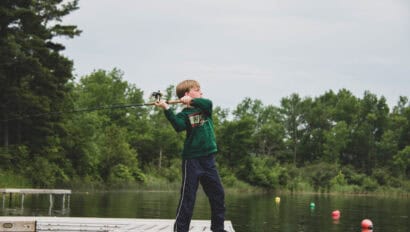If you have been to a Final Campfire at Camp Chippewa, you have found yourself sitting on the shore of Cass Lake, listening as everyone shares their highlight—the most memorable and joyful moment—of the summer. The sun is setting, a warm breeze is coming off the lake, and the haunting cry of loons may be echoing through the trees. Year after year, the tradition of the Final Campfire is repeated on the last night of camp. As the years go by, the faces around the campfire may change, but many of the highlights remain the same. Three specific highlights seem to outshine the rest, and they are shared year after year:
“My highlight was going on my first Canadian canoe trip, and earning my first tam.”
“My highlight was fishing and cliff jumping.” (Anyone who has been to Hook Island understands this one.)
“My highlight was seeing old friends and making new ones.”
These are inevitably the three most frequent highlights shared at Camp Chippewa. And while earning the Dress Gordon, and jumping off of rocks and eating fried fish with camp-legend Jerry Graham are no doubt integral parts of Camp Chippewa, it is the friendships that make Camp Chippewa special. Friendship is the basis of the camp community. It is what makes camp feel like home. It is what connects the Chippewa family across generations and across state lines. Relationships make camp great.
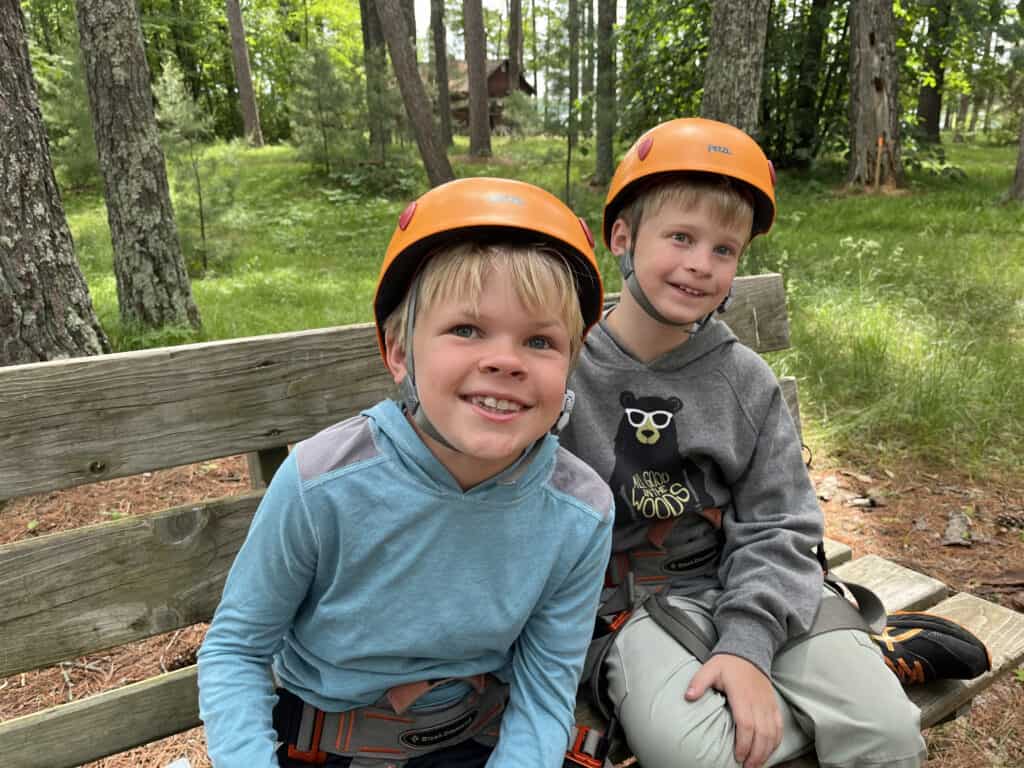
Camp makes relationships great too. Time spent at Camp Chippewa prepares campers and staff alike to build better relationships throughout their lives. Camp is intentionally designed as an environment for relationship-building. Shared goals, time together, team sports, and friendly competition all contribute to a program that emphasizes what brings us closer. Lifelong friendships are formed hiding in the woods together during the last round of Counselor Hunt, or during Buddy Checks in Cass Lake, or between bowman and sternman while fighting a headwind, or between doubles partners on Bear Paw Court. The list goes on and on.
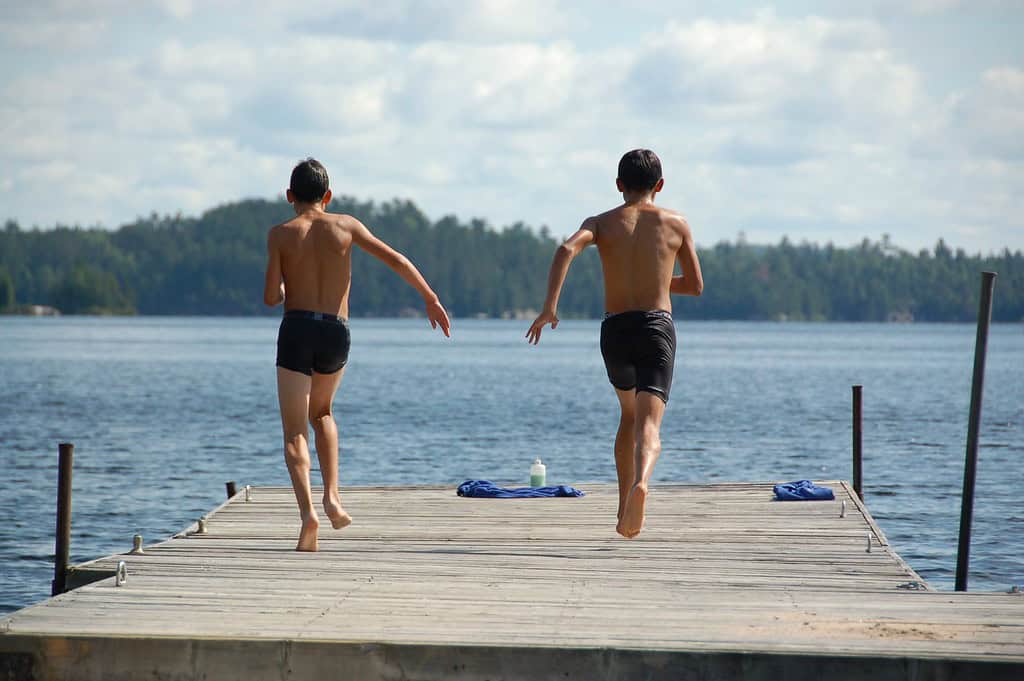
The end result is easy to see. New campers arrive to Camp Chippewa each summer, timidly walking off the bus, feeling the anticipation of the unknown people and surroundings. Four weeks later, the same campers are hugging friends goodbye and promising to stay in touch during the year. The change is remarkable to anyone who has seen it, but not surprising. Camp Chippewa provides a four-week outdoor program emphasizing lifelong skills and character development, but every moment of those four weeks is occurring within an environment designed to create relationships. Learning to be a friend is some of the core education kids receive at Camp Chippewa, and a direct result of the cabin environment and the shared goals of camping trips. Relationships make camp great, and in turn, camp fosters relationships—relationships at Chippewa, during the school year, and for a lifetime.
“Kids make their closest friends at camp” -Audrey Monke, Happy Campers.
At Camp Chippewa “seeing old friends and making new ones” is a highlight summer after summer. It makes camp fun and memorable. But it has far-reaching effects beyond the month spent in the Northwoods. Numerous scientific studies show that learning to make good friends and to be a good friend are critical for emotional development and well-being throughout life. Skills and traits including confidence, self-awareness, self-respect, and self-esteem are learned through the dynamics of a friendship. The relationships young people form with friends teach them how to cooperate, how to connect, how to understand the feelings of others, and how to be generous. Beyond just entertaining and comforting us, close relationships teach us to be better and more compassionate people. To see this, all you need to do is come to a Final Campfire, and see for yourself.
“The importance of quality childhood and adolescent friendships cannot be understated. These early positive relationships predict psychological well-being both during childhood and later in life. The research is clear: Friendships, not popularity, are the key to happiness.” -Audrey Monke, Happy Campers.
As a camp, we are also a youth development organization. Creating a place where boys make friends is one way we are working together to raise kids to be thriving adults.
